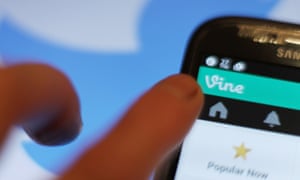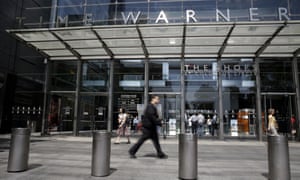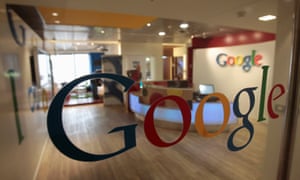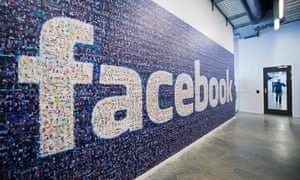If Breitbart recruits well-known figures to head local brands, as the Huffington Post has done, its path may be smoother still. In Britain, alongside Mr Kassam, it appointed James Delingpole, a conservative polemicist who writes in the Spectator, a 180-year-old right-of-centre magazine. Things are going well: the site’s audience has grown by 135% year on year, to 15m monthly page views in July, meaning it has a bigger reach than the Spectator’s own website. Not bad for a firm recently called a “bunch of nuts” by a spokesman for Mitt Romney, a former presidential candidate. The business of outrage, led in the early days by Rush Limbaugh, a right-wing talk-show host, and then perfected by Fox News, may well become another ubiquitous American export.
Thursday, December 8, 2016
Breitbart News is taking the business of outrage to Europe
http://www.economist.com/news/business-and-finance/21711265-readership-surging-stephen-bannons-alt-right-news-outfit-about-launch-french-and

If Breitbart recruits well-known figures to head local brands, as the Huffington Post has done, its path may be smoother still. In Britain, alongside Mr Kassam, it appointed James Delingpole, a conservative polemicist who writes in the Spectator, a 180-year-old right-of-centre magazine. Things are going well: the site’s audience has grown by 135% year on year, to 15m monthly page views in July, meaning it has a bigger reach than the Spectator’s own website. Not bad for a firm recently called a “bunch of nuts” by a spokesman for Mitt Romney, a former presidential candidate. The business of outrage, led in the early days by Rush Limbaugh, a right-wing talk-show host, and then perfected by Fox News, may well become another ubiquitous American export.
If Breitbart recruits well-known figures to head local brands, as the Huffington Post has done, its path may be smoother still. In Britain, alongside Mr Kassam, it appointed James Delingpole, a conservative polemicist who writes in the Spectator, a 180-year-old right-of-centre magazine. Things are going well: the site’s audience has grown by 135% year on year, to 15m monthly page views in July, meaning it has a bigger reach than the Spectator’s own website. Not bad for a firm recently called a “bunch of nuts” by a spokesman for Mitt Romney, a former presidential candidate. The business of outrage, led in the early days by Rush Limbaugh, a right-wing talk-show host, and then perfected by Fox News, may well become another ubiquitous American export.
Wednesday, December 7, 2016
Junk food ads targeting children banned in non-broadcast media
https://www.theguardian.com/society/2016/dec/08/junk-food-ads-targeting-children-banned-in-non-broadcast-media

The need to act has become clear as children spend more and more time on computers and phones. Research from Ofcom shows that young people aged five to 15 spend about 15 hours a week online, overtaking time spent watching TV for the first time.
http://www.economist.com/news/business/21693211-consumers-are-going-some-cereals-not-right-ones-soggy-sales
The need to act has become clear as children spend more and more time on computers and phones. Research from Ofcom shows that young people aged five to 15 spend about 15 hours a week online, overtaking time spent watching TV for the first time.
http://www.economist.com/news/business/21693211-consumers-are-going-some-cereals-not-right-ones-soggy-sales
Tuesday, December 6, 2016
Why Russia Is Using the Internet to Undermine Western Democracy
http://www.slate.com/articles/technology/future_tense/2016/12/why_russia_is_using_the_internet_to_undermine_western_democracy.html?wpsrc=sh_all_dt_tw_top

Does the internet drive people-powered revolutions? Maybe. It’s complicated. But 2011 began with the Arab Spring chasing out the rulers of Tunisia and Egypt, and ended with Moscow’s middle classes taking to the streets in Facebook-organized protests against electoral corruption. Facebook did more than just make it easier to organize; in a year of popular revolution, it let some Russians feel they were part of something bigger, that they had a chance. It was a profound shock to Putin’s government. To Putin’s ex-KGB mindset, there is no such thing as spontaneous, popular protest. In his world, power is vertical. Someone is always pulling the strings. So the Russian state married its existential pessimism to the West’s internet cheerleading. The internet had to be brought under control.
Saturday, December 3, 2016
How Casinos Enable Gambling Addicts
http://www.theatlantic.com/magazine/archive/2016/12/losing-it-all/505814/?utm_source=nl-atlantic-weekly-120216
Less than 40 years ago, casino gambling was illegal everywhere in the United States outside of Nevada and Atlantic City, New Jersey. But since Congress passed the Indian Gaming Regulatory Act in 1988, tribal and commercial casinos have rapidly proliferated across the country, with some 1,000 now operating in 40 states. Casino patrons bet more than $37 billion annually—more than Americans spend to attend sporting events ($17.8 billion), go to the movies ($10.7 billion), and buy music ($6.8 billion) combined.
Less than 40 years ago, casino gambling was illegal everywhere in the United States outside of Nevada and Atlantic City, New Jersey. But since Congress passed the Indian Gaming Regulatory Act in 1988, tribal and commercial casinos have rapidly proliferated across the country, with some 1,000 now operating in 40 states. Casino patrons bet more than $37 billion annually—more than Americans spend to attend sporting events ($17.8 billion), go to the movies ($10.7 billion), and buy music ($6.8 billion) combined.
Friday, December 2, 2016
Thursday, December 1, 2016
Revolution at The Washington Post
http://www.cjr.org/q_and_a/washington_post_bezos_amazon_revolution.php

In the three years since Amazon’s Jeff Bezos bought the Post for $250 million—now seen as a steal for one of the great brands in publishing—the Post has reinvented itself with digital speed. Its Web traffic has doubled since Bezos arrived, and it far outstrips The New York Times (and even BuzzFeed) in the number of online posts its reporters file every day. So successful has the Post become in the digital game that it now licenses its content management system to other news outlets, a business that could generate $100 million a year.
In the three years since Amazon’s Jeff Bezos bought the Post for $250 million—now seen as a steal for one of the great brands in publishing—the Post has reinvented itself with digital speed. Its Web traffic has doubled since Bezos arrived, and it far outstrips The New York Times (and even BuzzFeed) in the number of online posts its reporters file every day. So successful has the Post become in the digital game that it now licenses its content management system to other news outlets, a business that could generate $100 million a year.
Unretouched & Perfect In This Year’s Powerful Pirelli Calendar
http://www.huffingtonpost.com/entry/helen-mirren-pirelli-calendar_us_583efde8e4b0c33c8e134d4e

Mirren joined Nicole Kidman, Charlotte Rampling, Julianne Moore, Lupita Nyong’o and others in posing for the set of images, each expressing in the accompanying video above their admiration for Lindbergh’s ability to capture them in a more natural state than the usual photoshoot.
Mirren joined Nicole Kidman, Charlotte Rampling, Julianne Moore, Lupita Nyong’o and others in posing for the set of images, each expressing in the accompanying video above their admiration for Lindbergh’s ability to capture them in a more natural state than the usual photoshoot.
Wednesday, November 30, 2016
Sunday, November 27, 2016
The Kremlin Didn’t Sink Hillary—Obama Did
http://observer.com/2016/11/the-kremlin-didnt-sink-hillary-obama-did/
Yet again, President Obama’s unwillingness to confront Putin and his regime about anything—Syria, Ukraine, deploying nuclear missiles next to Poland—only encouraged the honey badger in the Kremlin to grow more adventurous and aggressive. By refusing to debunk noxious Russian lies, Obama encouraged Putin to tell more of them—including about Hillary Clinton. This culminated in the Russian intelligence operation which employed Wikileaks as a front to disseminate Democratic emails which had been intercepted by Moscow & which the National Security Agency has recently admitted.
Yet again, President Obama’s unwillingness to confront Putin and his regime about anything—Syria, Ukraine, deploying nuclear missiles next to Poland—only encouraged the honey badger in the Kremlin to grow more adventurous and aggressive. By refusing to debunk noxious Russian lies, Obama encouraged Putin to tell more of them—including about Hillary Clinton. This culminated in the Russian intelligence operation which employed Wikileaks as a front to disseminate Democratic emails which had been intercepted by Moscow & which the National Security Agency has recently admitted.
Saturday, November 26, 2016
Blue Peter star beats top authors to Bad sex award nomination
https://www.theguardian.com/books/2016/nov/17/bad-sex-awards-shortlist-blue-peter-janet-ellis
A spokesperson for the judges said that some of the nominated extracts “fall into the classic bad sex mistake of overwriting, with mixed metaphors, uncomfortable similes, or becoming so hyperbolic they strains credulity”.

A spokesperson for the judges said that some of the nominated extracts “fall into the classic bad sex mistake of overwriting, with mixed metaphors, uncomfortable similes, or becoming so hyperbolic they strains credulity”.

Bad sex award 2016: the contenders in quotes
https://www.theguardian.com/books/2016/nov/17/bad-sex-award-2016-the-contenders-in-quotes
Games of tennis, muddy fields, knocking knees – it’s time to get intimate with the challengers for the Literary Review’s 2016 Bad sex in fiction prize

Games of tennis, muddy fields, knocking knees – it’s time to get intimate with the challengers for the Literary Review’s 2016 Bad sex in fiction prize

Thursday, November 17, 2016
Tuesday, November 8, 2016
Monday, November 7, 2016
Doctor Strange epitomizes the girlfriend problem in Hollywood superhero films
https://www.theguardian.com/film/2016/nov/07/doctor-strange-female-characters-comic-book-films
It’s hard to criticize Morena Baccarin, who more than held her own with Ryan Reynolds’ scarred antihero for deadpan badinage and saucy bedroom oneupmanship. But once again a potentially intriguing female comic book player was downgraded to common or garden love-interest status. Perhaps Baccarin will get powered up in the sequel, as the film-makers have hinted, but don’t bet on it.

It’s hard to criticize Morena Baccarin, who more than held her own with Ryan Reynolds’ scarred antihero for deadpan badinage and saucy bedroom oneupmanship. But once again a potentially intriguing female comic book player was downgraded to common or garden love-interest status. Perhaps Baccarin will get powered up in the sequel, as the film-makers have hinted, but don’t bet on it.

The rise and rise of fake news
http://www.bbc.com/news/blogs-trending-37846860?SThisFB

"Recently we did a story about Hillary Clinton being fed the answers prior to the debate. There was already some low level chatter about that having happened - it was all fake - but that sort of headline gets into the right wing bubble and they run with it."
"Recently we did a story about Hillary Clinton being fed the answers prior to the debate. There was already some low level chatter about that having happened - it was all fake - but that sort of headline gets into the right wing bubble and they run with it."
Friday, November 4, 2016
Tech firms shell out to hire and hoard talent
http://www.economist.com/news/business/21709574-tech-firms-battle-hire-and-hoard-talented-employees-huge-pay-packages-silicon-valley

To maintain their grip on top employees, the tech giants use several tactics in addition to handing out stock. Some provide generous signing-on bonuses that can be clawed back if an employee leaves within three years. Amazon heavily weights stock grants to an employee’s third and fourth year with the company, as an incentive for them to stay and continue to work hard. Another common practice is to offer a “retention” bonus to make employees who are considering going elsewhere reconsider. Apple, Google and Facebook are rumoured to keep a list of companies they do not want to lose talent to, and supervisors are empowered to offer large bonuses to prevent people moving in that direction. A famous example of this occurred in 2011, when Neal Mohan, a senior Google executive, was considering leaving for Twitter. Some say he was offered a bonus of $100m in stock to stay at Google.
To maintain their grip on top employees, the tech giants use several tactics in addition to handing out stock. Some provide generous signing-on bonuses that can be clawed back if an employee leaves within three years. Amazon heavily weights stock grants to an employee’s third and fourth year with the company, as an incentive for them to stay and continue to work hard. Another common practice is to offer a “retention” bonus to make employees who are considering going elsewhere reconsider. Apple, Google and Facebook are rumoured to keep a list of companies they do not want to lose talent to, and supervisors are empowered to offer large bonuses to prevent people moving in that direction. A famous example of this occurred in 2011, when Neal Mohan, a senior Google executive, was considering leaving for Twitter. Some say he was offered a bonus of $100m in stock to stay at Google.
Digital advertisers battle over online privacy
http://www.economist.com/news/business/21709584-escalating-fight-over-users-data-and-targeted-ads-digital-advertisers-battle-over-online
For advertisers, the result is an increasingly lopsided industry. Any new restrictions on companies, such as Verizon, which are vying to expand their digital ad businesses, will bestow more power to the already mighty Google and Facebook, points out Brian Wieser of Pivotal Research Group. For consumers, the result is a muddle: limits for gathering data depend on the identity of the gatherer. “Nothing in these rules will stop edge-providers from harvesting and monetising your data, whether it’s the websites you visit or the YouTube videos you watch or the e-mails you send,” declares Ajit Pai, an FCC commissioner who voted against the order.
For advertisers, the result is an increasingly lopsided industry. Any new restrictions on companies, such as Verizon, which are vying to expand their digital ad businesses, will bestow more power to the already mighty Google and Facebook, points out Brian Wieser of Pivotal Research Group. For consumers, the result is a muddle: limits for gathering data depend on the identity of the gatherer. “Nothing in these rules will stop edge-providers from harvesting and monetising your data, whether it’s the websites you visit or the YouTube videos you watch or the e-mails you send,” declares Ajit Pai, an FCC commissioner who voted against the order.
Wednesday, November 2, 2016
Russian media's love affair with Trump
http://www.bbc.co.uk/news/world-europe-37837432?SThisFB
If you were to base your view of the US election solely on pro-Kremlin newspapers and state TV, you might easily conclude that the election is rigged, that the result almost certainly will be contested and that America faces a prolonged period of post-election chaos.
https://www.bloomberg.com/view/articles/2016-10-31/why-bettors-take-a-flier-on-trump
There are good reasons to ignore each of these predictions. Big-data analysis is a young discipline, and the methods are still relatively untested. All the models based on economic performance and the previous administration’s performance could be unreliable in this year’s race because it is so intensely personalized and scandal-ridden. Besides, these models do not boast perfect historical accuracy.

If you were to base your view of the US election solely on pro-Kremlin newspapers and state TV, you might easily conclude that the election is rigged, that the result almost certainly will be contested and that America faces a prolonged period of post-election chaos.
https://www.bloomberg.com/view/articles/2016-10-31/why-bettors-take-a-flier-on-trump
There are good reasons to ignore each of these predictions. Big-data analysis is a young discipline, and the methods are still relatively untested. All the models based on economic performance and the previous administration’s performance could be unreliable in this year’s race because it is so intensely personalized and scandal-ridden. Besides, these models do not boast perfect historical accuracy.
Tuesday, November 1, 2016
Monday, October 31, 2016
Sunday, October 30, 2016
Vine-al countdown: fans share favourite Vines before app shuts down
https://www.theguardian.com/technology/2016/oct/30/vine-al-countdown-fans-share-favourite-vines-before-app-shuts-down
Users of the platform remind us what we stand to lose when this weird and wonderful corner of the internet ceases to exist

Users of the platform remind us what we stand to lose when this weird and wonderful corner of the internet ceases to exist

Saturday, October 29, 2016
Meet the super-agent behind Pogba and Ibrahimovic ~ Simon Kuper
https://www.ft.com/content/548155cc-9bcf-11e6-b8c6-568a43813464

![]()
This chubby, bespectacled little Dutch-Italian is arguably the world’s most influential football agent. It’s no coincidence that Manchester United this summer signed three of his clients: Paul Pogba (for a world record transfer fee of £89.3m), Zlatan Ibrahimovic and Henrikh Mkhitaryan. Raiola’s select stable also includes Mario Balotelli, the great unfulfilled talent of the current generation. Like Raiola or hate him (as Sir Alex Ferguson does), he helps shape the transfer market. He is one of the major forces determining which players end up at which clubs.
![]()
![]()
![]()
![]()

This chubby, bespectacled little Dutch-Italian is arguably the world’s most influential football agent. It’s no coincidence that Manchester United this summer signed three of his clients: Paul Pogba (for a world record transfer fee of £89.3m), Zlatan Ibrahimovic and Henrikh Mkhitaryan. Raiola’s select stable also includes Mario Balotelli, the great unfulfilled talent of the current generation. Like Raiola or hate him (as Sir Alex Ferguson does), he helps shape the transfer market. He is one of the major forces determining which players end up at which clubs.




Friday, October 28, 2016
Angela Merkel: internet search engines are 'distorting perception'
https://www.theguardian.com/world/2016/oct/27/angela-merkel-internet-search-engines-are-distorting-our-perception
A lack of transparency about algorithms is endangering debate, German chancellor tells media conference

A lack of transparency about algorithms is endangering debate, German chancellor tells media conference

Thursday, October 27, 2016
Angling for the future of TV
http://www.economist.com/news/business/21709345-huge-merger-tries-follow-change-way-people-watch-television-angling

IMAGINE a television which, as in the old days, has only a handful of channels to choose from instead of hundreds, as a typical cable set-up might offer today. In a decade or so TVs will once again have only a few channels, but each will run miles deep, with content that can be viewed on demand. Netflix might be one such offering; Amazon another. Both firms are spending billions of dollars making and buying TV shows and films to sell directly to viewers to watch when they like, and on devices other than the box in the corner of the room. And other rich tech firms may join them.
IMAGINE a television which, as in the old days, has only a handful of channels to choose from instead of hundreds, as a typical cable set-up might offer today. In a decade or so TVs will once again have only a few channels, but each will run miles deep, with content that can be viewed on demand. Netflix might be one such offering; Amazon another. Both firms are spending billions of dollars making and buying TV shows and films to sell directly to viewers to watch when they like, and on devices other than the box in the corner of the room. And other rich tech firms may join them.
The value of gun-toting film stars
http://www.economist.com/blogs/graphicdetail/2016/10/daily-chart-15
But gun-toting may bring actors more than just moral satisfaction. The number of different guns an actor has handled in films is strongly correlated with Ulmer scores, which measure an actor’s bankability—or ability to draw financing—on a scale from 0 to 300. This trend holds even when controlling for the total number of acting credits. Denzel Washington seems to hold a different gun in each movie in which he stars.
But gun-toting may bring actors more than just moral satisfaction. The number of different guns an actor has handled in films is strongly correlated with Ulmer scores, which measure an actor’s bankability—or ability to draw financing—on a scale from 0 to 300. This trend holds even when controlling for the total number of acting credits. Denzel Washington seems to hold a different gun in each movie in which he stars.
Tuesday, October 25, 2016
Techno wars - The Economist
http://www.economist.com/news/business/21709062-earlier-sunny-mood-about-technology-and-innovation-has-given-way-pessimism-techno-wars

The real question is not whether the IT revolution has run out of steam or whether creative destruction is grinding to a halt. In fact, the IT revolution is probably gathering pace and Google and Amazon are two of the most innovative firms to emerge in the past 50 years. Rather it is whether the new economy can counteract the forces ranged against it: ageing populations; a political class responding to populism by restricting trade and by over-regulating business; and education systems that in many places are failing. The big danger is that, while optimists and pessimists battle it out, the world becomes ever more divided between islands of high productivity surrounded by a vast ocean of stagnation.
The real question is not whether the IT revolution has run out of steam or whether creative destruction is grinding to a halt. In fact, the IT revolution is probably gathering pace and Google and Amazon are two of the most innovative firms to emerge in the past 50 years. Rather it is whether the new economy can counteract the forces ranged against it: ageing populations; a political class responding to populism by restricting trade and by over-regulating business; and education systems that in many places are failing. The big danger is that, while optimists and pessimists battle it out, the world becomes ever more divided between islands of high productivity surrounded by a vast ocean of stagnation.
Monday, October 24, 2016
How guns get into films
http://www.economist.com/blogs/prospero/2016/10/bang-your-buck

Given that a number of prominent actors—Matt Damon, Sigourney Weaver, George Clooney, Jodie Foster and Sylvester Stallone, to name a handful—are in favour of gun control, a public repudiation of firearms would have a significant effect on the industry. It would help, too, if free advertising was eradicated by film companies by demanding expensive product placement contracts from manufacturers. Actions films and the requisite guns would of course still have a place on the silver screen—but it might limit the collateral damage.
Given that a number of prominent actors—Matt Damon, Sigourney Weaver, George Clooney, Jodie Foster and Sylvester Stallone, to name a handful—are in favour of gun control, a public repudiation of firearms would have a significant effect on the industry. It would help, too, if free advertising was eradicated by film companies by demanding expensive product placement contracts from manufacturers. Actions films and the requisite guns would of course still have a place on the silver screen—but it might limit the collateral damage.
AT&T and Time Warner plot a blockbuster media future
http://www.economist.com/news/business-and-finance/21709150-combination-huge-distributor-tv-leading-content-producer-bold
Time Warner has been here before. In 2000 its $350bn merger with AOL was the largest in American history. It was meant to be the dawn of a new era dominated by internet giants. That deal was a disaster that cost thousands of jobs and destroyed hundreds of billions of dollars in combined market value for the two firms (AOL spun off in 2009 and was acquired by Verizon last year for $4.4bn). Now Time Warner becomes part of a megadeal in another business with an interesting but uncertain future.
Time Warner has been here before. In 2000 its $350bn merger with AOL was the largest in American history. It was meant to be the dawn of a new era dominated by internet giants. That deal was a disaster that cost thousands of jobs and destroyed hundreds of billions of dollars in combined market value for the two firms (AOL spun off in 2009 and was acquired by Verizon last year for $4.4bn). Now Time Warner becomes part of a megadeal in another business with an interesting but uncertain future.
Sunday, October 23, 2016
AT&T agrees to buy Time Warner for $85bn
https://www.theguardian.com/media/2016/oct/22/att-buy-time-warner-donald-trump
Telecoms companies are increasingly seeking to buy into cable TV providers and content producers, in order to offer more extensive packages to consumers. AT&T spent $48bn buying the satellite TV provider DirecTV last year, making it the country’s largest pay-TV provider, with 25 million customers. The company has also spent hundreds of millions improving its infrastructure to give consumers a better experience watching video content on their mobile phones.
https://www.ft.com/content/4714e3f4-98cd-11e6-8f9b-70e3cabccfae

Telecoms companies are increasingly seeking to buy into cable TV providers and content producers, in order to offer more extensive packages to consumers. AT&T spent $48bn buying the satellite TV provider DirecTV last year, making it the country’s largest pay-TV provider, with 25 million customers. The company has also spent hundreds of millions improving its infrastructure to give consumers a better experience watching video content on their mobile phones.
https://www.ft.com/content/4714e3f4-98cd-11e6-8f9b-70e3cabccfae

Saturday, October 22, 2016
Google’s tracking is as creepy as Facebook's. Here’s how to disable it
https://www.theguardian.com/technology/2016/oct/21/how-to-disable-google-ad-tracking-gmail-youtube-browser-history
In practice, this means that Google can now, if it wanted to, build up even richer profiles of named individuals’ online activity. It also means that the DoubleClick ads that follow people on the web could be personalized based on the keywords that individuals use in Gmail.

In practice, this means that Google can now, if it wanted to, build up even richer profiles of named individuals’ online activity. It also means that the DoubleClick ads that follow people on the web could be personalized based on the keywords that individuals use in Gmail.

Friday, October 21, 2016
Milk without the cow - The Economist
http://www.economist.com/news/special-report/21708876-political-reform-essential-prerequisite-flourishing-economy-milk-without
Innopolis has comfortable town houses, playgrounds with Wi-Fi and a large swimming pool. Igor Nosov, its manager, holds an American MBA. The city’s free economic zone is dominated by a circular office building for high-tech firms. There is just one thing in short supply: the firms themselves. So far the building has only about a dozen occupants. “Well, we’ve built a collective farm. Now we need the farmers,” quips one of the Tatar officials. Whether those farmers will come depends on a range of factors mostly outside Tatarstan’s control.

Innopolis has comfortable town houses, playgrounds with Wi-Fi and a large swimming pool. Igor Nosov, its manager, holds an American MBA. The city’s free economic zone is dominated by a circular office building for high-tech firms. There is just one thing in short supply: the firms themselves. So far the building has only about a dozen occupants. “Well, we’ve built a collective farm. Now we need the farmers,” quips one of the Tatar officials. Whether those farmers will come depends on a range of factors mostly outside Tatarstan’s control.
Thursday, October 20, 2016
Wednesday, October 19, 2016
China leads the world in the adoption of virtual reality
http://www.economist.com/news/business/21708715-china-leads-world-adoption-virtual-reality-insanely-virtual
In the West the interest in VR has mainly focused on consumer applications like gaming. By contrast, in China business applications are an immediate and profitable avenue for growth

http://www.economist.com/blogs/graphicdetail/2016/10/daily-chart-8
In the West the interest in VR has mainly focused on consumer applications like gaming. By contrast, in China business applications are an immediate and profitable avenue for growth
http://www.economist.com/blogs/graphicdetail/2016/10/daily-chart-8
Monday, October 17, 2016
Friday, October 14, 2016
Social-media endorsements are the latest thing in advertising
http://www.economist.com/news/business/21708717-social-media-endorsements-are-latest-thing-advertising-gold-posts
Photo
 Yet as media agencies and brands have piled in, the grey area between voluntary celebrity endorsements and paid advertisements has grown murky. Not all influencers label their posts clearly with “#ad”. Consumer watchdogs are crying foul. One, Truth in Advertising, recently accused Ms Kardashian and her sisters of running “deceptive marketing campaigns”.
Yet as media agencies and brands have piled in, the grey area between voluntary celebrity endorsements and paid advertisements has grown murky. Not all influencers label their posts clearly with “#ad”. Consumer watchdogs are crying foul. One, Truth in Advertising, recently accused Ms Kardashian and her sisters of running “deceptive marketing campaigns”.
http://www.nytimes.com/2016/08/30/business/media/instagram-ads-marketing-kardashian.html?_r=0
Photo

http://www.nytimes.com/2016/08/30/business/media/instagram-ads-marketing-kardashian.html?_r=0
Tuesday, October 11, 2016
Crash: how computers are setting us up for disaster
https://www.theguardian.com/technology/2016/oct/11/crash-how-computers-are-setting-us-up-disaster

We are now on more lists than ever before, and computers have turned filing cabinets full of paper into instantly searchable, instantly actionable banks of data. Increasingly, computers are managing these databases, with no need for humans to get involved or even to understand what is happening. And the computers are often unaccountable: an algorithm that rates teachers and schools, Uber drivers or businesses on Google’s search, will typically be commercially confidential. Whatever errors or preconceptions have been programmed into the algorithm from the start, it is safe from scrutiny: those errors and preconceptions will be hard to challenge.
We are now on more lists than ever before, and computers have turned filing cabinets full of paper into instantly searchable, instantly actionable banks of data. Increasingly, computers are managing these databases, with no need for humans to get involved or even to understand what is happening. And the computers are often unaccountable: an algorithm that rates teachers and schools, Uber drivers or businesses on Google’s search, will typically be commercially confidential. Whatever errors or preconceptions have been programmed into the algorithm from the start, it is safe from scrutiny: those errors and preconceptions will be hard to challenge.
Monday, October 10, 2016
Friday, October 7, 2016
Spotify and Apple are now spinning profits for record labels
http://www.economist.com/news/business/21708300-once-enemies-record-labels-spotify-and-apple-are-now-spinning-profits-them-change
Most of that rebound is due to growth in subscription-streaming revenues. In the first half of 2016 subscription streaming in America reached a retail value of $1 billion, up by over $500m in just one year, putting it on a par with digital downloads. Retail revenues from radio-like services such as Pandora, and from ad-supported on-demand streaming such as YouTube and Spotify’s free service are faring much less well—they grew in America by less than a tenth, to $600m.

Most of that rebound is due to growth in subscription-streaming revenues. In the first half of 2016 subscription streaming in America reached a retail value of $1 billion, up by over $500m in just one year, putting it on a par with digital downloads. Retail revenues from radio-like services such as Pandora, and from ad-supported on-demand streaming such as YouTube and Spotify’s free service are faring much less well—they grew in America by less than a tenth, to $600m.
Thursday, October 6, 2016
Liquid assets: how the business of bottled water went mad
https://www.theguardian.com/business/2016/oct/06/liquid-assets-how--business-bottled-water-went-mad
 Over the past two decades, bottled water has become the fastest-growing drinks market in the world. The global market was valued at $157bn in 2013, and is expected to reach $280bn by 2020. Last year, in the UK alone, consumption of water drinks grew by 8.2%, equating to a retail value of more than £2.5bn. Sales of water are 100 times higher than in 1980. Of water: a substance that, in developed countries, can be drunk for free from a tap without fear of contracting cholera. What is going on?
Over the past two decades, bottled water has become the fastest-growing drinks market in the world. The global market was valued at $157bn in 2013, and is expected to reach $280bn by 2020. Last year, in the UK alone, consumption of water drinks grew by 8.2%, equating to a retail value of more than £2.5bn. Sales of water are 100 times higher than in 1980. Of water: a substance that, in developed countries, can be drunk for free from a tap without fear of contracting cholera. What is going on?
Wednesday, October 5, 2016
Monday, October 3, 2016
The advertising industry’s trust problem
http://www.economist.com/news/business/21707951-advertising-industrys-trust-problem-doesnt-ad-up
Marketers are particularly worried by a lack of transparency. Facebook’s inflated numbers did not lead to overbilling, but may have prompted companies to advertise more on it. Google and Facebook have started to allow third parties to verify some data, but many metrics remain proprietary.

Marketers are particularly worried by a lack of transparency. Facebook’s inflated numbers did not lead to overbilling, but may have prompted companies to advertise more on it. Google and Facebook have started to allow third parties to verify some data, but many metrics remain proprietary.
Friday, September 30, 2016
Wednesday, September 28, 2016
Facebook and Google: most powerful and secretive empires we've ever known
https://www.theguardian.com/technology/2016/sep/28/google-facebook-powerful-secretive-empire-transparency
There is the ongoing conflict over these companies’ self-identification as mere “technology” businesses, and the media critics’ charge that they are “media companies”. The issue being debated is usually whether Facebook or Google produce content or make editorial decisions, and in that sense constitute media. It’s hardly worth debating: of course they produce content, if only by algorithmically selecting, prioritizing and presenting.

There is the ongoing conflict over these companies’ self-identification as mere “technology” businesses, and the media critics’ charge that they are “media companies”. The issue being debated is usually whether Facebook or Google produce content or make editorial decisions, and in that sense constitute media. It’s hardly worth debating: of course they produce content, if only by algorithmically selecting, prioritizing and presenting.

Monday, September 26, 2016
Friday, September 23, 2016
How tech stole the show at fashion week
https://www.theguardian.com/media-network/2016/sep/23/tech-fashion-week-burberry-tommy-hilfiger-virtual-reality
‘See-now, buy-now’ and virtual reality are in vogue as brands seek to engage with consumers beyond the catwalk

‘See-now, buy-now’ and virtual reality are in vogue as brands seek to engage with consumers beyond the catwalk

Subscribe to:
Comments (Atom)








